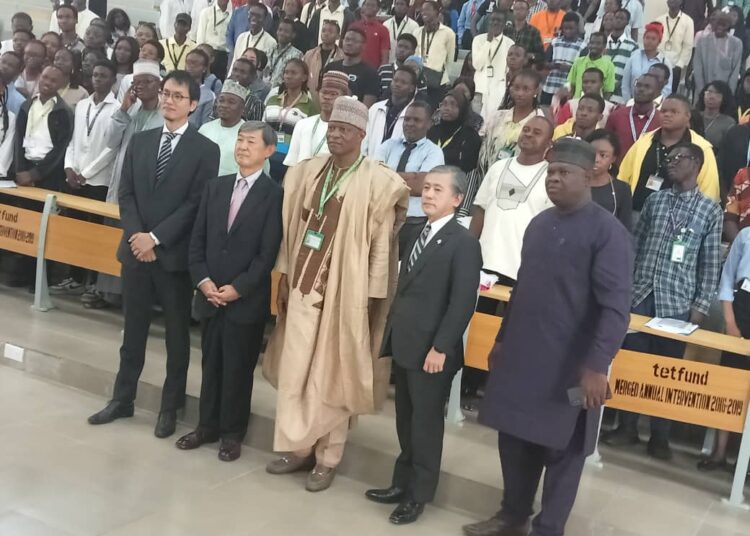The Vice Chancellor of the University of Abuja (UniAbuja), Prof. Abdul-Rasheed Na’Allah, has disclosed that over 200 students of the institution are currently receiving training in order to work with Japanese companies.
Na’Allah stated this in Abuja on Tuesday during the 3rd Japan International Cooperation Agency
(JICA) Chair with the theme, “Making of Modern Japan,” held at the University of Abuja campus.
The Vice Chancellor charged developing countries, including Nigeria, to learn from Japan about its success story, while stressing the opportunities available for the students of the University in studying Japanese language.
“So you can see many of our students are taking Japanese but more than that, we wants our students to understand the spirit of Japan because Japanese politics has helped Japan and they are now the second largest economy in the world.
“We think the success of Japan, if we learn its strategies, Nigeria with all the abundant resources, we can be the best in the world.
“Currently, we have over 200 students of our university that are training in order to work with Japanese companies,” he said.
Na’Allah further emphasised the need for total elimination of industrial disputes in the University system, saying that the institution will do everything possible to ensure that there is no more strike.
“You don’t need to close down the Universities just because you have disagreement with someone. So, we are praying that there should be no more strike.”
The Ambassador of Japan to Nigeria, H.E Matsunaga Kazuyoshi, promised to continue to actively support the University of Abuja, which serves as a hub for the promotion of Japanese culture and language in Nigeria under the leadership of the Vice Chancellor, Prof. Na’Allah.
He said, “The Japanese Government offers you the opportunity to learn more about Japan. We offer a variety of scholarships.
“For example, the Japanese Government Scholarship Programme by the Ministry of Education, Culture, Sports, Science and Technology (MEXT), the ‘ABE Initiative’ and ‘Technical training for Nigerian nationals’ by JICA.
“Studying in Japan provides you not only with expertise but also offers you the opportunity to learn about the Japanese code of conduct, such as diligence and punctuality. Many graduates who have completed their studies in Japan are now working with the Nigerian Government and universities, and we hope to see more of them working for Japanese companies in Nigeria in the future.”
In his presentation on “Nigeria’s Relation With Asia: Issues and Prospectives,” the deputy Vice Chancellor, Dean of Department of History and Diplomatic Studies, Prof. Afaha Philip, said the Japan-Nigeria relation has brought economic development in the country.
Represented by Dr. Eze Ukauwa, Afaha called for the need for the Engineering Department to be made to study Toyota and establish a plant in the University campus.






